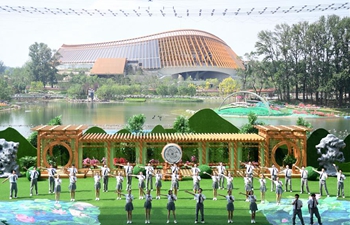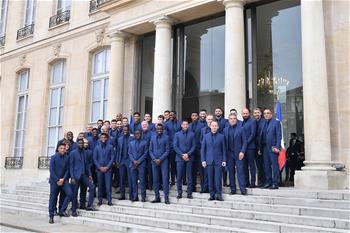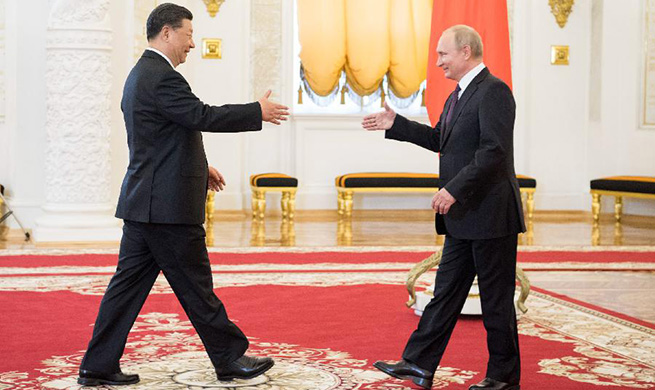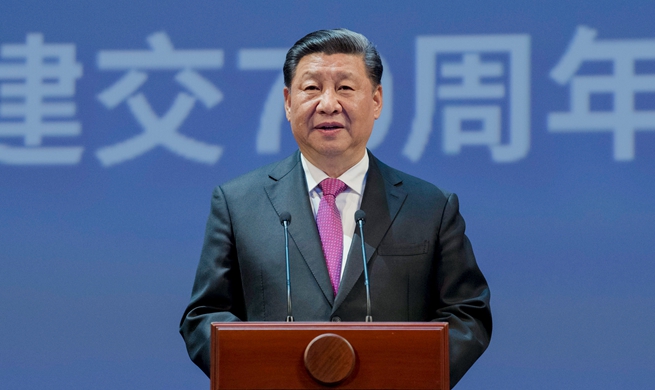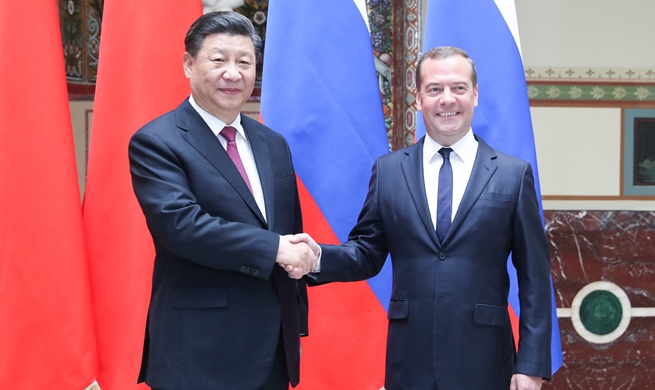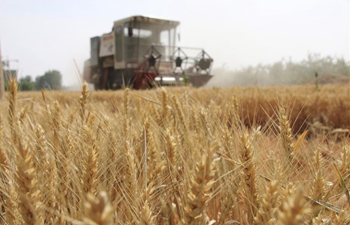CAPE TOWN, June 6 (Xinhua) -- Policy uncertainty continued unabated on Thursday over South Africa's central bank as the financial market fluctuated due to conflicting remarks by top officials of the ruling African National Congress (ANC) on the bank's mandate. This prompted opposition parties to urge the ANC to clarify its policy on the South African Reserve Bank (SARB), the country's central bank.
"South Africa cannot afford the kind of reckless utterances coming from the ruling party as the consequent policy uncertainty will continue to compromise investment, economic growth and job creation," the Democratic Alliance (DA) warned.
The SARB was put under the spotlight on Tuesday when ANC Secretary General Ace Magashule said the ANC's national executive committee (NEC) had agreed to expand the mandate of the SARB to allow it to focus on economic growth and employment instead of only targeting inflation.
Magashule's remarks, however, were refuted by ANC's economic transformation head, Enoch Godongwana, who said the ruling party had not taken a decision to expand the mandate of the SARB.
Godongwana said Magashule's comments risk "undermining policy certainty."
Finance Minister Tito Mboweni and SARB Governor Lesetja Kganyago also came out in defense of the SARB's current mandate, saying any attempt to change the mandate would destabilize the market.
The SARB's primary mandate "is to protect the value of the currency in the interest of balanced economic growth and development," Mboweni said.
The ANC's policy confusion over the SARB has sent the local currency of rand plummeting by almost 2 percent against the U.S. dollar since Tuesday.
Observers say the confusion highlights the divisions within the ANC and further complicates President Cyril Ramaphosa's plan to turn around South Africa's struggling economy, which contracted by 3.2 percent in the first quarter, its worst performance in a decade.
Unlike most central banks in the world, the SARB has been privately owned since it was established in 1921, but its shareholders have no control over monetary policy, financial stability policy or banking regulations.
Although the independence of the SARB is enshrined in South Africa's Constitution, the bank has been criticized for failing to help boost the economy and create jobs.
There had been attempts by the ANC to nationalize the SARB so as to enable it to play a more active role in providing economic impetus.
In 2018, the ANC, which would like to see the government owning 100 percent of the bank's shares instead of the current arrangement where the shares were held by a number of private shareholders, tabled a motion in Parliament to nationalize the central bank, but it later withdrew the motion due to strong opposition.
The SARB insists that changing the ownership structure of the bank could raise the level of risk and uncertainty for the country in both the financial and economic policy sense.
On Thursday, the DA urged Ramaphosa to take a stance on the SARB.
The president has remained silent as the debate unfolds.
The DA said Ramaphosa's "quiet diplomacy" on the SARB is adding to the country's economic crisis.
It is time that Ramaphosa publicly clarifies the ANC and his government's position on the SARB, said DA Shadow Minister of Finance Geordin Hill-Lewis.
"The independence and current mandate of the SARB must remain intact," Hill-Lewis said. "The DA will use all mechanisms at our disposal to strongly oppose any attempts to change the SARB's mandate or compromise its independence."
